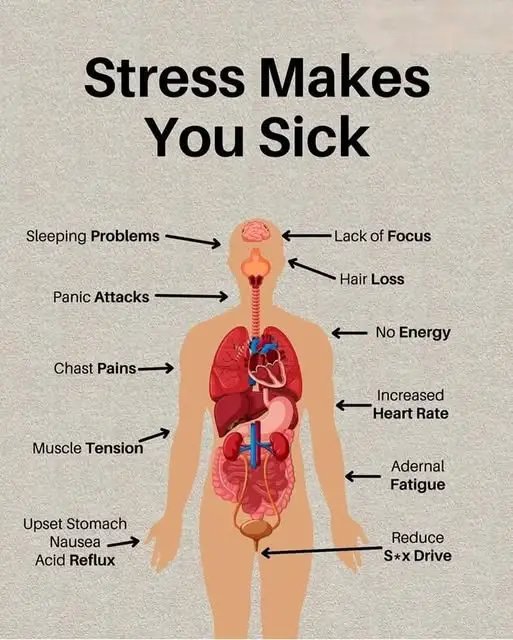How Stress Affects Your Health & Ways to Manage It
In today’s fast-paced world, stress has become a part of daily life. While a little stress can motivate us to stay focused and productive, chronic stress can negatively affect both mental and physical health. From headaches and fatigue to weakened immunity and anxiety, unmanaged stress can take a serious toll. The good news is that there are simple, effective ways to reduce stress and improve overall well-being.
How Stress Affects Your Body and Mind
When you’re stressed, your body releases hormones like cortisol and adrenaline, triggering the “fight or flight” response. While this reaction is helpful in short bursts, long-term stress keeps your body in overdrive.
Some of the most common effects of stress on health include:
-
Physical health problems – headaches, high blood pressure, muscle tension, and digestive issues.
-
Weakened immune system – making you more prone to colds and infections.
-
Mental health concerns – stress can worsen anxiety, depression, and sleep disturbances.
-
Unhealthy coping habits – such as overeating, smoking, or excessive alcohol consumption.
Signs You May Be Stressed
Stress affects everyone differently, but some signs to watch for include:
-
Constant fatigue or low energy
-
Irritability or mood swings
-
Trouble sleeping or oversleeping
-
Difficulty concentrating
-
Loss of appetite or emotional eating
Recognizing these early warning signs can help you take steps before stress leads to more serious health concerns.
Effective Ways to Manage Stress
The key to stress management is finding healthy coping strategies that fit into your lifestyle. Here are some proven methods:
1. Practice Relaxation Techniques
Deep breathing exercises, meditation, and yoga can lower cortisol levels and calm your mind. Just 10 minutes a day can make a difference.
2. Stay Active
Regular physical activity like walking, swimming, or cycling helps reduce tension, boost mood, and improve sleep quality.
3. Maintain a Balanced Diet
Nutritious meals with whole grains, lean proteins, fruits, and vegetables can stabilize energy levels and support mental clarity.
4. Get Enough Rest
Aim for 7–9 hours of sleep each night. A bedtime routine—such as reading or listening to calming music—can improve sleep quality.
5. Connect with Others
Talking with friends, family, or support groups provides emotional relief and reminds you that you’re not alone.
6. Manage Your Time
Prioritize tasks, set realistic goals, and don’t be afraid to say no. Organizing your day can reduce feelings of overwhelm.
7. Seek Professional Help if Needed
If stress feels unmanageable, talking with a therapist or counselor can provide guidance and coping tools.
Final Thoughts
Stress is a natural part of life, but when left unchecked, it can harm both physical and mental health. By recognizing the signs early and practicing healthy coping strategies like exercise, mindfulness, and connecting with others, you can take control of stress before it takes control of you. Remember—your well-being is worth the time and care it takes to manage stress effectively.
